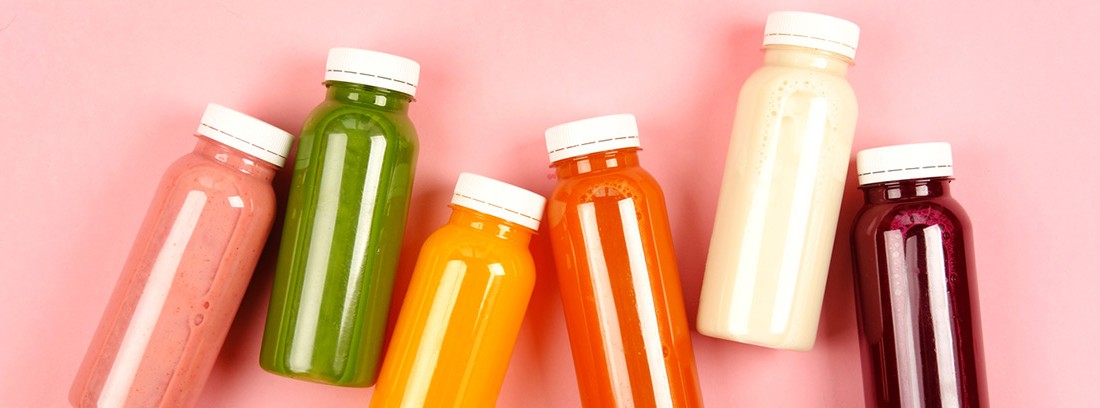Drinks that hydrate in addition to water

Water is an essential part of our body because it participates in multiple functions and organic reactions. In addition, it serves to maintain our electrolyte balance. Although, water is s drink, there are other drinks that we can alternate in our day to day and that also exert a moisturizing function due to their content of electrolytes such as potassium, magnesium, sugar and vitamins.
Super hydrating drinks
According to a study carried out by the University of St. Andrews in Scotland in which it was analyzed how our body responds to the intake of a drink, drinks with a little sugar, fat, or protein they can help us to be hydrated for longer.
Milk
The drink that best meets these characteristics is skimmed milk. Compared to water, milk provides us with sugars in the form of lactose, milk proteins and some saturated fatty acids that help delay the emptying of fluid from the stomach and maintain a longer hydration. In addition, milk also contains calcium and electrolytes such as sodium, a mineral that, as we have seen, should be replaced in hypotonic dehydration.
Other drinks to hydrate you
The study analyzed other beverages according to their hydration index, obtaining the following classification, from highest to lowest hydration:
- Skimmed milk.
- Specific oral rehydration solutions (not to be confused with isotonic drinks).
- Whole milk.
- Orange juice.
- Cola soft drinks (with sugar and without sugar).
- Tea.
- Isotonic drinks.
- Natural water (reference drink).
- Soda water.
- Sports energy drinks: surprisingly, these types of drinks, whose advertising emphasizes that they are especially indicated for hydration during and after physical activity, are the ones that obtained the worst score in terms of hydration index.
3 Types of drinks according to the type of dehydration
Depending on which we are suffering, such as loss of water and / or electrolytes (sodium, potassium, etc.), you can use another type of drinks different from the guide.
Hypertonic drink (weak mineralized water)
Occurs when water loss is greater than electrolytes, for example, in very hot weather conditions or processes that occur with fever. In this case, the most hydrating drink will be a hypotonic drink that hydrates the intracellular environment. The best example of a hypotonic drink is the weak mineralized water since we do not need to replace electrolyte losses.
Isotonic drink (water and mineral salts)
Occurs when loss of water and electrolytes is similar, for example, in situations of vomiting, diarrhea or in the practice of sports of long duration and intense activity. In this case we must opt for a drink that combines water and mineral salts (magnesium, potassium and calcium, etc.) in adequate proportions and avoid carbonated or sugary drinks. These types of drinks are similar to oral serum that can be sold in pharmacies and must present the following conditions:
- A carbohydrate concentration of 6-9%.
- An amount of sodium between 460-1150 mg / per liter of water.
- An osmolarity (concentration of solutes) between 200-330 mOsm / per kilo of water
As we can make an isotonic drink ourselves? • 1 liter of water, the magic component. • ½ tablespoon of salt, to replace sodium. • ½ tablespoon of baking soda, which will help us delay muscle fatigue. • The juice of 2 lemons, which will provide us with potassium. • 1 tablespoon of sugar for its contribution of glucose and fructose.
Hypotonic drink (potassium and sodium)
Occurs when electrolyte loss is greater than water, for example, in people taking diuretics. In these cases, it is best to replace this dehydration with hypertonic drinks, that is, containing a higher electrolyte concentration than our cells, such as some beverages enriched with potassium and sodium, like grape juice
- Mineral water is the reference drink to hydrate ourselves both in our day to day and in sports.
- We can alternate the consumption of water with other hydrating drinks.
- Drinks with a little sugar, fat or protein can help us stay hydrated for longer.
Judith Torrell Diploma in Human Nutrition Clinical Nutrition Specialist
(Updated at Apr 14 / 2024)